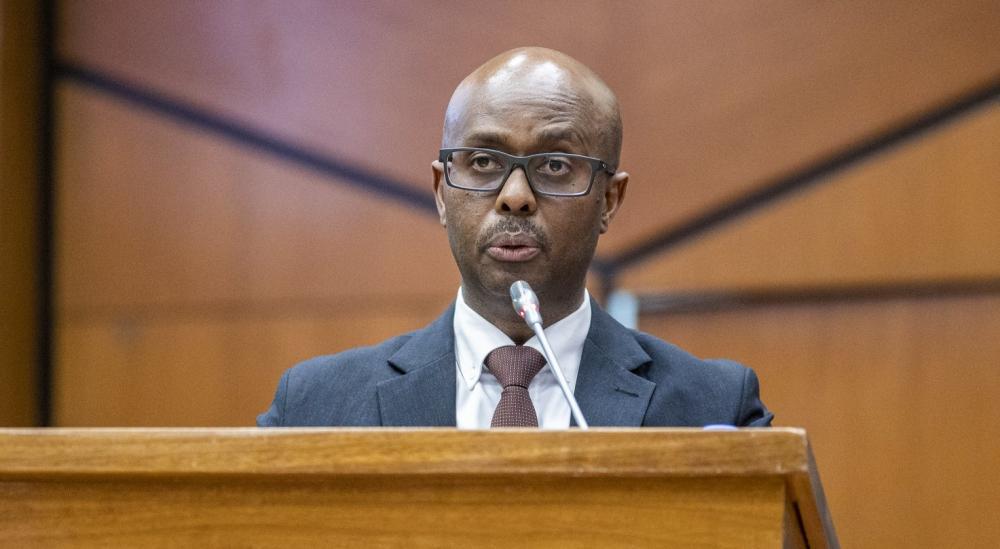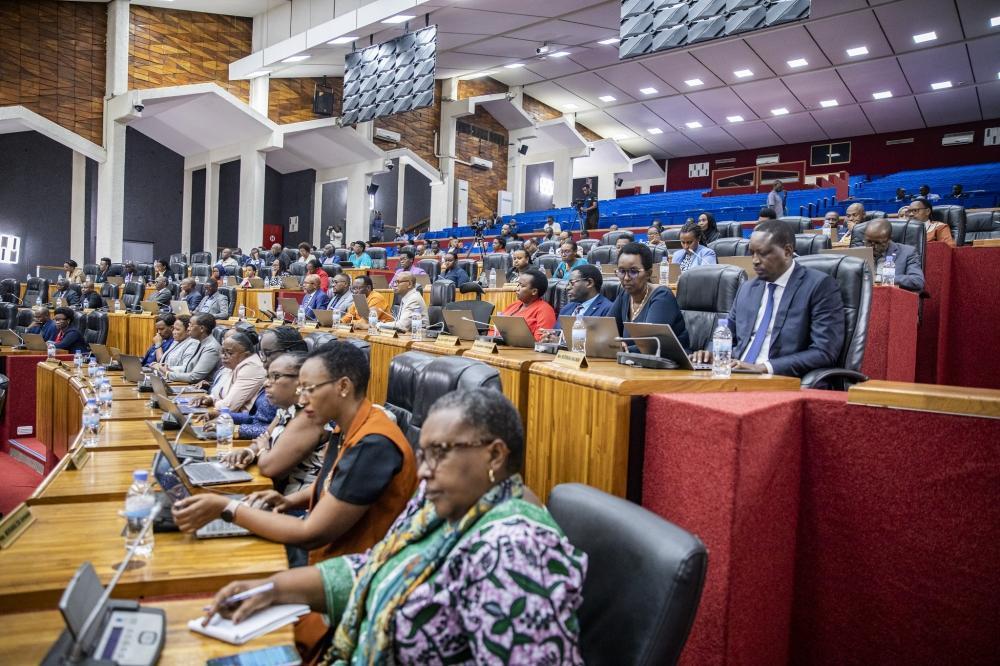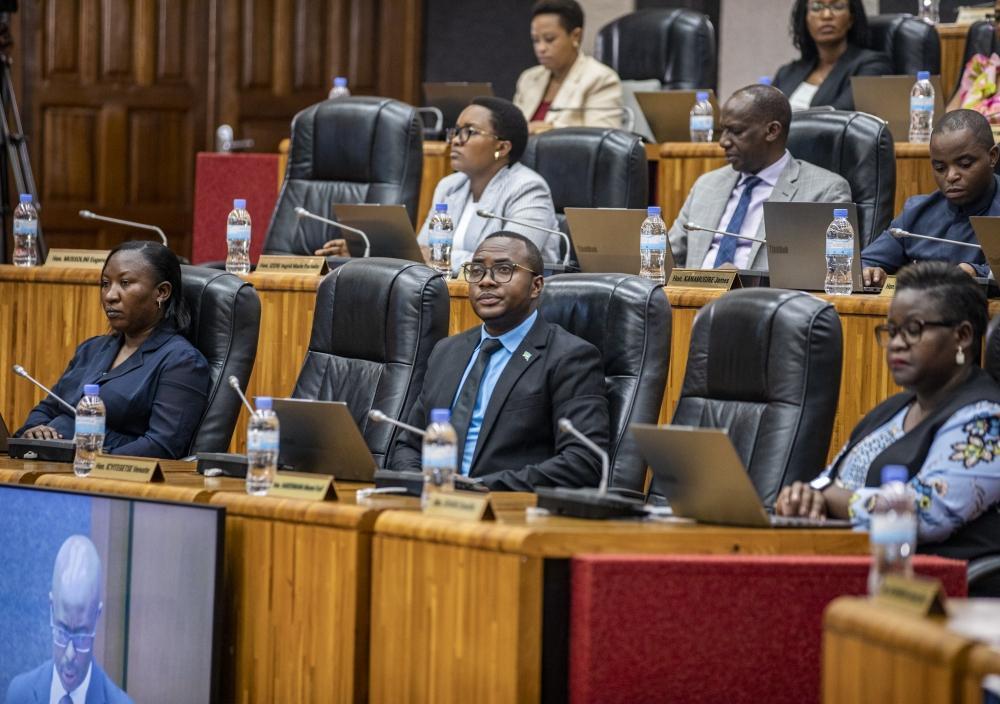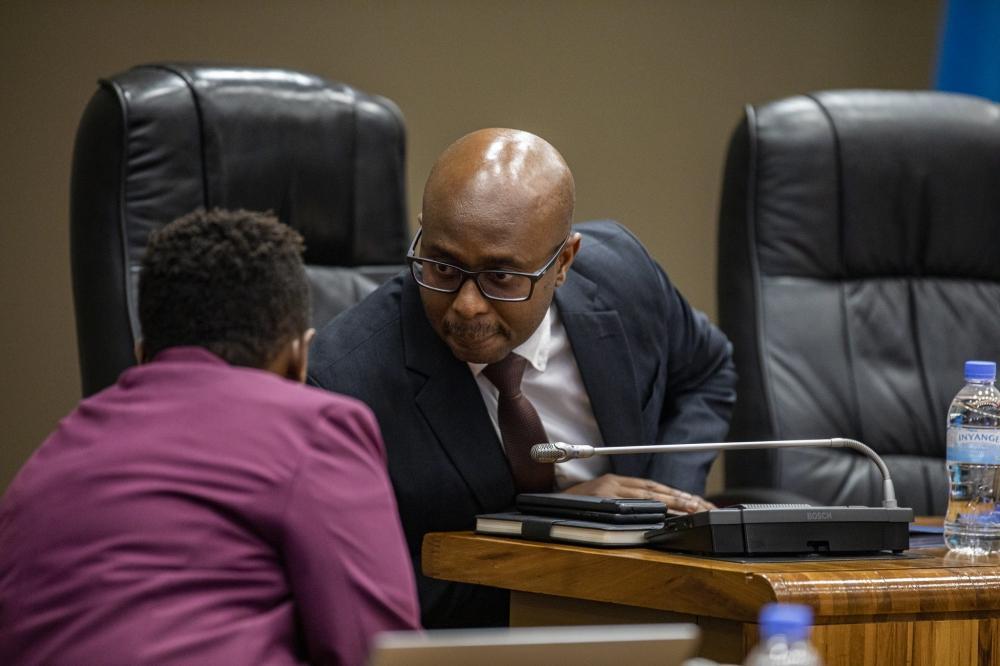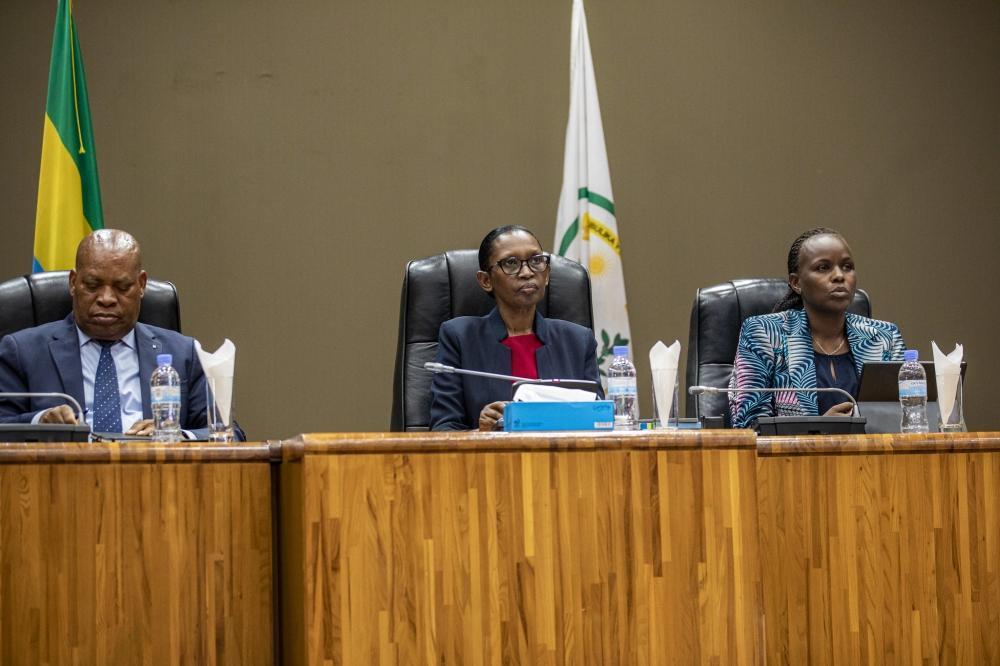Africa-Press – Rwanda. The government has slightly adjusted the 2025-2026 fiscal budget in a move that is aimed at accelerating development of key projects that officials hope will transform the country in the medium term.
In the latest budget that was presented by the Minister of Finance and Economic Planning, Yusuf Murangwa, allocations for economic and social transformation pillars were slightly revised downward, while transformational governance’s budget was revised upward.
Under the latest budget, the economic transformation pillar, aimed at fast-tracking inclusive economic development, will take 62.8 per cent of the budget, slightly down from 63 per cent that had been set aside in the budget framework paper (BFP).
Allocation for social transformation pillar was revised downward from 22 per cent to 21.7 per cent, while transformational governance received increased allocation. It will now account for 15.5 per cent of the total budget from15 per cent in the budget framework paper.
MPs follow Minister Murangwa while presenting the 2025-26 budget bill to Parliament.
In total, the government plans to spend Rwf7 trillion in the 2025-2026 fiscal year, which begins on July 1. This budget represents a 21 per cent increase from 2024-2025.
The Minister said that the planned increase in spending reflects the government’s commitment to investing in strategic projects such as fast-tracking the construction of the New Kigali International Airport which the government wants to be completed by 2028.
According to the Ministry, the increment also underscores government’s willingness to fund key development priorities such as boosting agricultural productivity, expanding electricity access, improving access to clean water and sanitation, strengthening the transport system, and upgrading education and healthcare, among other key sectors.
“The Government is prioritising spending to support investments that will help us achieve our second National Strategy for Transformation (NST2) goals,” he told parliamentarians.
“We are also working to manage public finances carefully to reduce our budget deficit, stabilise debt, and make our economy more resilient to external shocks,” he added.
At the same time, he said, the government wants to improve household incomes and spending.
MPs follow Minister Murangwa while presenting the 2025-26 budget bill to Parliament.
Here is a look at budget allocations in alignment with NST2 pillars:
Economic transformation
Economic transformation pillar – which Murangwa said aims to fast-track inclusive economic development centred on the private sector, knowledge and the country’s natural resources – was allocated more than Rwf4,417 billion representing 62.8 per cent of the total projected spending.
In the budget framework paper, this pillar was allocated more than Rwf4.465 trillion or 63 per cent of the total. This implies a reduction of Rwf48 billion.
The resources, MINECOFIN indicated, will be allocated to accelerate inclusive growth in agriculture, improve access to electricity, water, and sanitation, strengthen the transport system, and promote urbanisation and rural settlement development.
The funding will be used to enhance climate resilience, boost local manufacturing and exports to reduce the trade deficit, develop a vibrant financial sector, and create sustainable and decent jobs, it added.
In line with expediting the transport of people and goods, focus will be put on priority activities including the construction of more national-level tarmac roads including the 63-kilometre Base-Butaro-Kidaho road, and the upgrade of the 10-kilometre Prince-House-Giporoso-Masaka.
While giving an update on the Base-Butaro-Kidaho road, he said its construction was at 46 per cent of completion.
MP Jean-Claude Ntezimana wanted to know what the government was doing in line with dealing with erratic rains, and plans to increase irrigated land – to build agriculture resilience to climate change effects.
Murangwa said that the government has irrigation expansion projects, citing a project to irrigate 7,000 hectares in Kirehe District, Eastern Province, which will start this year.
Minister Murangwa consults with an official during the session
Social transformation
This pillar was apportioned 21.7 per cent of the total budget, or over Rwf1,526 billion.
Compared with the initially proposed Rwf1,533 billion allocation – which accounted for 22 per cent of the total – in the budget framework paper, the new amount is Rwf7 billion less.
The funding will focus on improving quality of healthcare and education, enhancing social protection programs, promoting sustainable nutrition services, family and gender promotion as well as enhancing sustainable disaster management programmes, as per MINECOFIN.
MP Christine Mukabunani talked about the issue of healthcare workers who complain about small remunerations, asking the minister to indicate the government’s plan to solve it through the budget.
Murangwa responded that the government was exploring ways to respond to healthcare workers’ salary needs.
MP Damien Nyabyenda appreciated the fact that the budget bill was prepared by taking into account the Parliament’s inputs to the budget framework paper, with a consideration of the country’s available resources.
He appreciated the social transformation activities catered for under the bill including constructing more classrooms and increasing the number of teachers, school feeding, healthcare through the construction of district hospitals, fighting stunting, and social protection.
Senate President Francois Xavier Kalinda, Speaker of Lower Chamber Gerturde Kazirwa and her deputy during the presentation.
Transformational governance
Transformation governance is projected to get Rwf1,088 billion or 15.5 per cent of the entire budget. This allocation reflects Rwf55 billion compared to the previous Rwf1,033 billion or 15 per cent under the budget framework paper.
The proposed allocation will target quality service delivery, good governance and transformational leadership, public finance management, justice system strengthening, peace and security maintenance, crime prevention, and the reinforcement of economic diplomacy, MINECOFIN pointed out.
It indicated the East African Community (EAC) 2025/26 fiscal year budgets were planned to be presented on the same day – June 12 – under the common theme “Inclusive economic transformation through domestic resource mobilization and resilient strategic Investment for job creation and improved livelihoods.”
Rwanda is one of the eight partner states making up the EAC.
For More News And Analysis About Rwanda Follow Africa-Press

